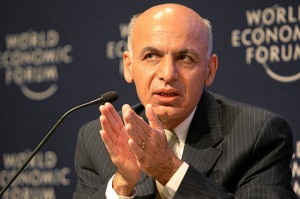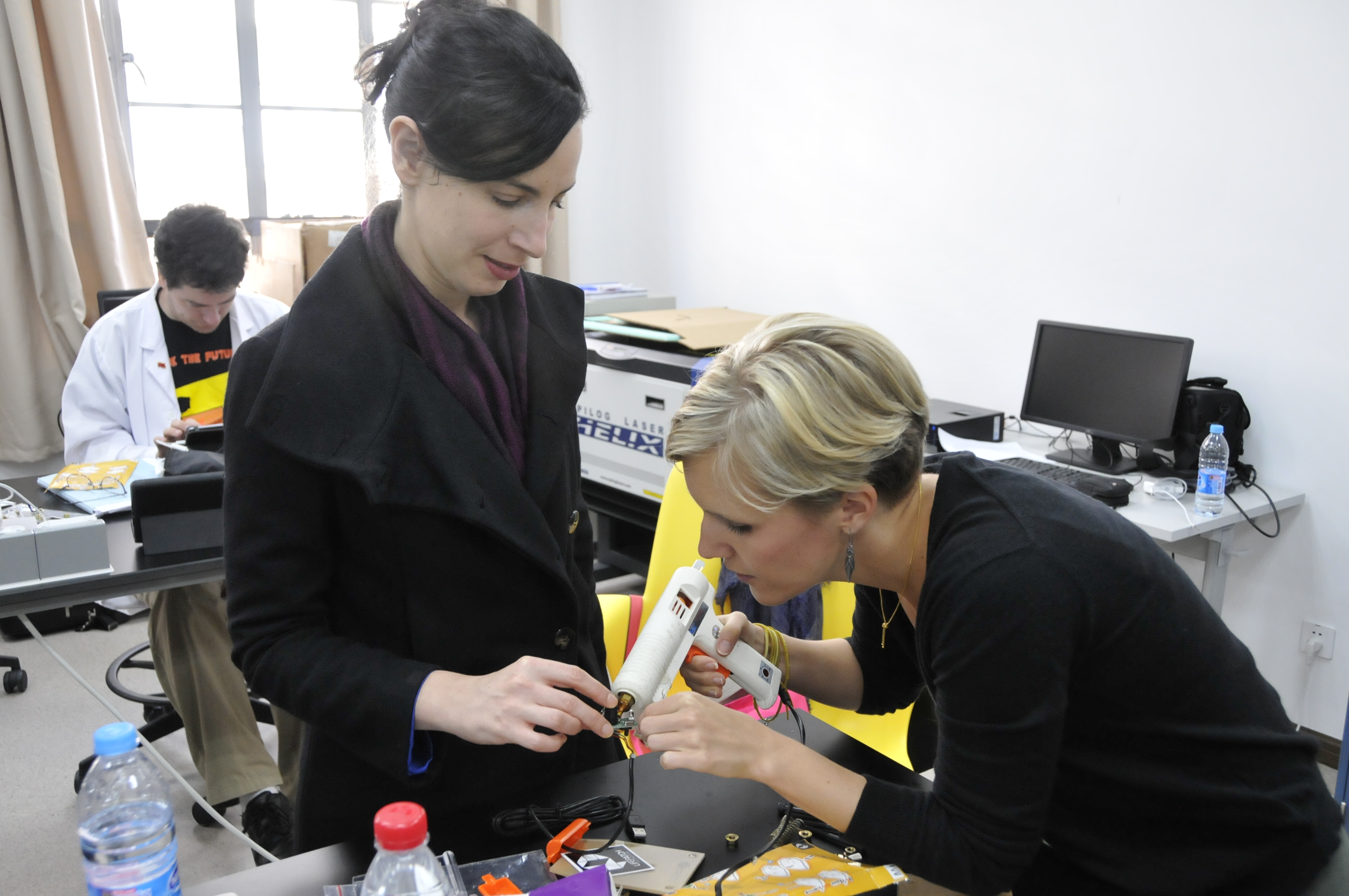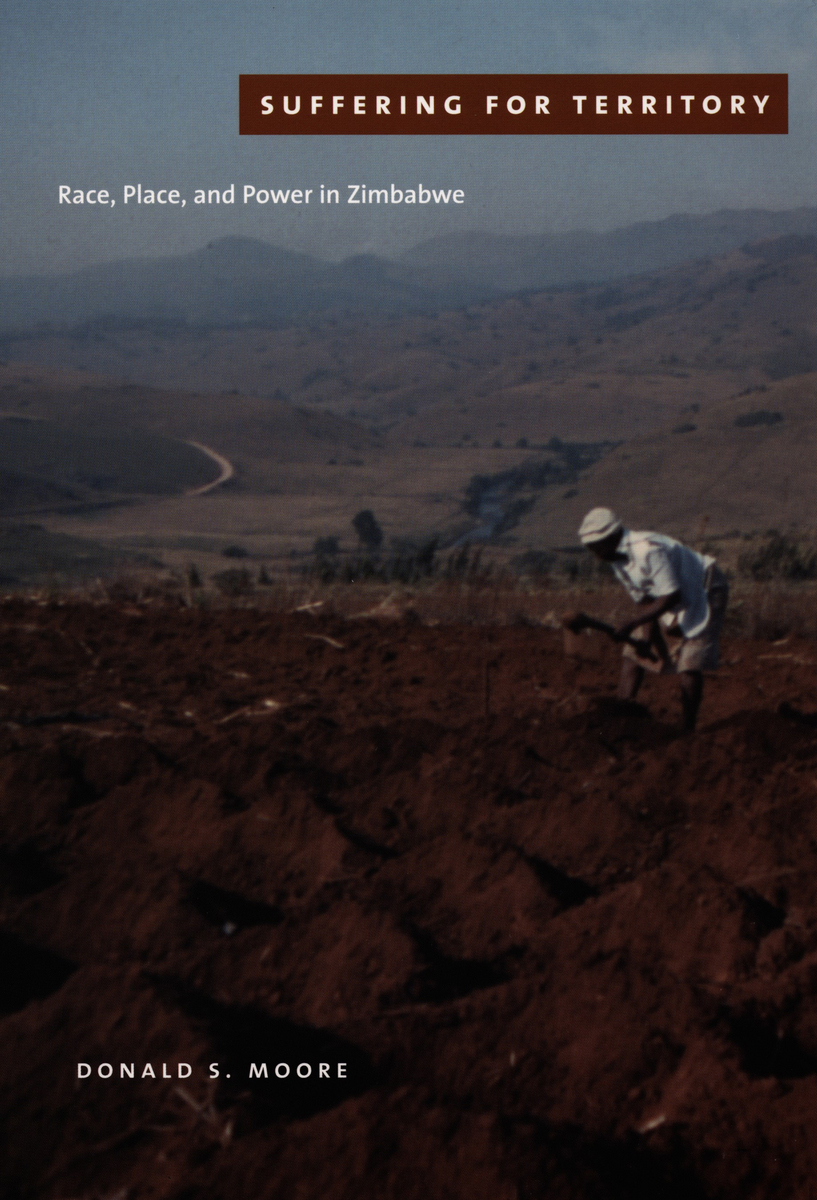Afghanistan’s upcoming elections have received a lot of coverage here in the United States, and all over the world. But did you know that one of the leading candidates, Ashraf Ghani, is an anthropologist?

Afghanistan’s upcoming elections have received a lot of coverage here in the United States, and all over the world. But did you know that one of the leading candidates, Ashraf Ghani, is an anthropologist?

[This post is part of a two-week series featuring interviews with designers reflecting on anthropology and design.]
SILVIA LINDTNER. DIY maker, hacker, and ethnographic design researcher.

ANTHROPOLOGY DESIGN.
Many disciplines and fields often work with competing notions of what counts as design, claiming authority over the term, practice, and definition. Think for instance about efforts in critical design (e.g., Dunne & Raby 2007) and the strong oppositions its practitioners often make to product design. Critical design is aimed at engaging people in critical ways with commonly used products. As Jeff and Shaowen Bardzell illuminate, critical design is positioned in opposition to affirmative design—the latter considered as “the common practice, and this practice is amoral and ultimately a dupe for capitalist ideology, while critical designers are described as moral agents who seek to change society for the better” (Bardzell & Bardzell 2013).
It is important to not shy away from the politics of design, or to brash aside such heated debates over definitions, terms, and authentic practices–many of which are legitimizing efforts of new approaches in an overly competitive market (both industry and the academy). The question is how to engage the politics of design in a way that remains open to multiple viewpoints and approaches. At numerous times in my research, I have heard people argue that the process of making and designing itself is apolitical. There is much that refutes such statements–think for instance of questions of labor when we turn towards sites of production that manufacture the technological products we use on a daily basis, or listen to debates of hackerspace members over what counts as hacking versus making versus product design. What is important here is to consider the differences that lie in designing as a mode of inquiry, a leisure practice, or central to one’s profession and livelihood.
It’s been a week now since US representatives Eric Cantor and Lamar Smith published an article on USA Today about “rethinking science funding.” Their main point is supposedly that we need to take a closer, critical look at how we fund science through grants from the National Science Foundation (NSF). On the surface their argument seems reasonable, even “common sense.” Below the surface, it’s little more than a disingenuous, ideologically-based attack on the social sciences. And it’s nothing new from Cantor, Smith, and their cronies. As a graduate student in anthropology–and a recipient of a dissertation grant from the NSF–it’s pretty infuriating to see these two politicians trying to intervene so recklessly into the funding process.1
I understand the need for both accountability and clarity in the whole grant process. Are there things that need to be changed? Problems that need to be addressed? Absolutely. There are always ways to improve how things work. Definitely. But what Cantor and Smith are proposing, despite some of their benign-sounding rhetoric, is not just some altruistic attempt to “help” make things better. In fact, what they are doing is more like a witch hunt than the “we’re doing this for the people” line they’re trying to sell to the US public. Continue reading

Iraqi people wave their flags during celebrations after the Iraq soccer team won the Asian Cup, in streets of the Shiite holy city of Karbala, 80 kilometers (50 miles) south of Baghdad, Iraq, Sunday, July 29, 2007. (AP Photo via Yahoo)
In a true sports story that seems like a script to a Hollywood movie, the Iraqi Men’s soccer team beat Saudi Arabia in the finals of the Asian Cup on July 29th in Jakarta, with the winning goal in the 71st minute headed in by the Sunni team captain from Kirkuk, off a corner kick by Kurd teammate from Mosul. The Iraqi team was as diverse as anything Disney could think of, with Sunnis, Shi’ites, and Kurds mixed in together under a Brazilian coach. Political leaders throughout the world all had something to say about one of the few instances of good news coming from Iraq; even General David Petreus, commander of American forces in Iraq, took the time to celebrate.
Can sports triumph over politics? Or is it yet another arena to be politicized. The ability of sports to bring together a social group is not just the main message of movies like Remember the Titans or The Mighty Ducks; it is also a main point in many of the anthropological studies of sports. There are a number of good reviews of the anthropological literature on sports. In no particular order, I would recommend Noel Dyck’s introduction to a 2000 edited volume entitled Games, Sports, and Cultures, Kendall Blanchard’s 1995 book The Anthropology of Sport (more like a textbook), or Thomas Carter’s 2002 article in Identities. There are numerous ethnographies that also have a good introduction to the field, including those written by Susan Brownell, Alan Klein, Eduardo Archetti, and Joseph Alter (to name only a few). There are many good ethnographies and edited volumes on all the major global sports such as soccer, baseball, track and field, and basketball, as well as interesting studies on more regional sports.
Much of the contemporary study of sports (especially in European circles) is based upon the seminal work of Norbert Elias, who approached sports as a necessary product of modernity by what he refers to as “the civilizing process.” From Elias’s perspective, a key component of sports is the bureaucratic control of violence through the establishment of rules and organizations that enforce them. Elias further added that sports, as an element of leisure, are an outcome of industrialization, in that work becomes increasingly differentiated from leisure in a dialectical manner. Work in modern societies imposes a rigorous restraint on individuals, increasing a sense of alienation that, according to Elias, is relieved by the “quest for excitement” in leisure (think of Victor Turner’s communitas). Sports are therefore a necessary part of modernity that provides society with a mimetic excitement that gives individuals a liberating, cathartic experience within the iron cage of modern life. Sports, however, must have the same kind of restraints as wider society for society to maintain its cohesion; they are a part of the Weberian process of rationalization. The anthropological literature on sports can be roughly divided into different topical categories, and later this week I will discuss some of them.
Sports and Identity. Sports are presented as a key cultural arena in which a multiplicity of identities (such as ethnicity, nationalism, gender, or class) are created, performed, and essentialized. Sports provide people with bodily means to differentiate themselves from others latitudinally or hierarchically (see Jeremy MacClancy’s edited volume). The connection between sports and identity is most visible in various public spectacles such as the Olympic Games or World Cup Soccer. These studies have showed how sports serve as a double-edged sword – like the example of Jackie Robinson breaking the racial barrier in baseball, sports can both divide and unify, flatten or exacerbate differences. Pierre Bourdieu has an interesting set of articles that lay out a program for the study of sports, especially as a means of understanding social class dynamics.
Nation-states are heavily involved in the use of sports for unifying diverse cultures and communities within its borders (think of the recent victory by the Iraqi men’s soccer team in the Asian Cup), and through its patronage can transform sports into a political arena. In a study of Indian wrestlers, Joseph Alter, for example, demonstrates how wrestling spread an ideology that on the one hand is critical of the Hindu caste system through its interpretation of the body, but on the other hand is critical of the social conditions created by the modern Indian state. In some of these studies, the successes and failures of individual athletes in competition are social projections of regional and national pride and can help integrate diverse societies through an imagined community generated by athletes and teams that physically represent the nation.
Paradoxically, sports also provides a way to transgress national boundaries by re-drawing boundaries based upon the shared practices of a particular sport. Alan Klein’s 1997 ethnographic study of a binational professional baseball team demonstrates not only the possibilities of this transgression, but also its limits. Again, the recent triumph of the Iraqi national team — composed of Shiites, Sunnis, and Kurds — brought fans out into the streets to celebrate the victory, a celebration later marred by renewed violence. And the Sunni team captain who scored the winning goal stayed in Syria while the rest of team returned to Iraq because of the threat of violence precisely for his brining a little joy to Iraqis; not quite a good Hollywood ending.
Ha Ha Harare here we come! This summer’s reading circle choice is Donald S. Moore’s Suffering for Territory: Race, Place, and Power in Zimbabwe.

There are really a wealth of interesting anthropology books out there right now, so it was hard to figure out what to read. Sandra Bamford’s books is a very close second, and I’m sure it will re-surface here in the future, but given that it just came out (my library doesn’t yet have a copy), it might be hard for people to find. Similarly Harry West’s recent book is also very new, and seeing as how Kupilikula was suggested last year and this year, somewhere along the line it too will return. But in the end, Moore has risen to the top of the list. We’re hoping it will draw in people in geography, politics, maybe legal or environmental studies, so tell all your cool friends in the other disciplines too.
The book is substantial, 400 pages, 3 sections. I will try to post something by July 15th on the introduction, and then shoot for 1-2 chapters per week until mid-late August. I hope all the Savage Minds will chime in, and if anyone else wants to write anything substantial about a section of the book, I will happily post it here on your behalf. Let the suffering begin!